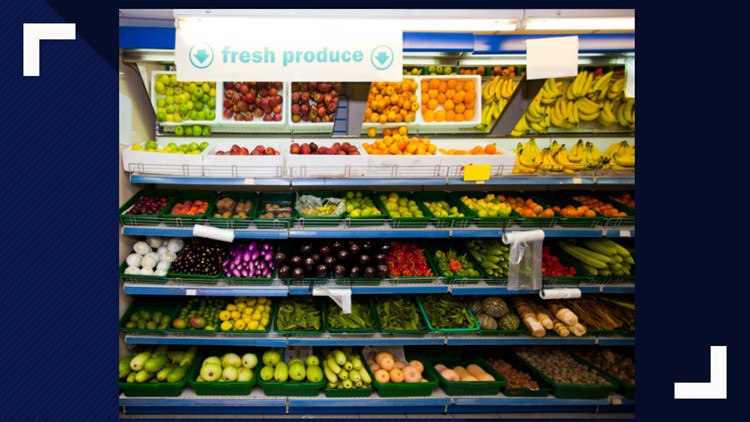RICHMOND, Va. — More grocery stores might open in areas of Virginia lacking easy access to healthy food options under a bill unanimously passed by the state Senate.
SB 999, which cleared the Senate on Monday, is a bipartisan effort that would establish the Virginia Grocery Investment Fund to provide $5 million for the construction, rehabilitation and expansion of grocery stores in underserved communities throughout the commonwealth.
The bill's chief sponsors are Republican Sen. Bill Stanley of Franklin County and Democratic Sen. Rosalyn Dance of Petersburg. Stanley said the absence of grocery stores in low-income areas is a health issue for the state.
"Right now, we have 1.7 million Virginians - almost a half a million of those are children - who live in what we call food deserts and have limited access to nutritious and healthy foods," Stanley said.
Legislators are asking for the General Assembly to provide $5 million for the Virginia Grocery Investment Fund over the next two years. The money would be distributed by the state treasurer with approval from the Department of Housing and Community Development.
Legislators have requested that the annual interest earned and any remaining money stay with the program. Up to 10 percent of the fund can be used to pay administrative and operation costs.
Food deserts are defined by the U.S. Department of Agriculture as parts of the country that don't have access to fresh fruit, vegetables and other healthful foods, usually because those areas don't have grocery stores, farmers' markets or healthy food providers close by.
According to the USDA, nearly 18 percent of Virginians live in food deserts.
Dance said eliminating food deserts was especially important for children living in indigent communities.
"What we found is that when children are given choices, when healthy foods are available, they select healthy foods," Dance said. "I think the cost (of the grocery fund) is outweighed by the benefits that the children will receive."
The bill sponsors cited food deserts as a contributor to the state's health problems, saying that residents of areas without grocery stores often rely on local convenience stores that primarily sell sugary, fat-laden foods.
"Those are not as healthy as the opportunities in regular grocery stores," Stanley said. "We have higher rates of diabetes. We have higher rates of those kind of chronic illnesses, which then puts pressure on our health care system, which is already under enough pressure."
The Senate bill now heads to the House for consideration.
A similar House bill, HB 1858, sponsored by Del. Delores McQuinn, D-Richmond, was killed by a subcommittee Jan. 16.



